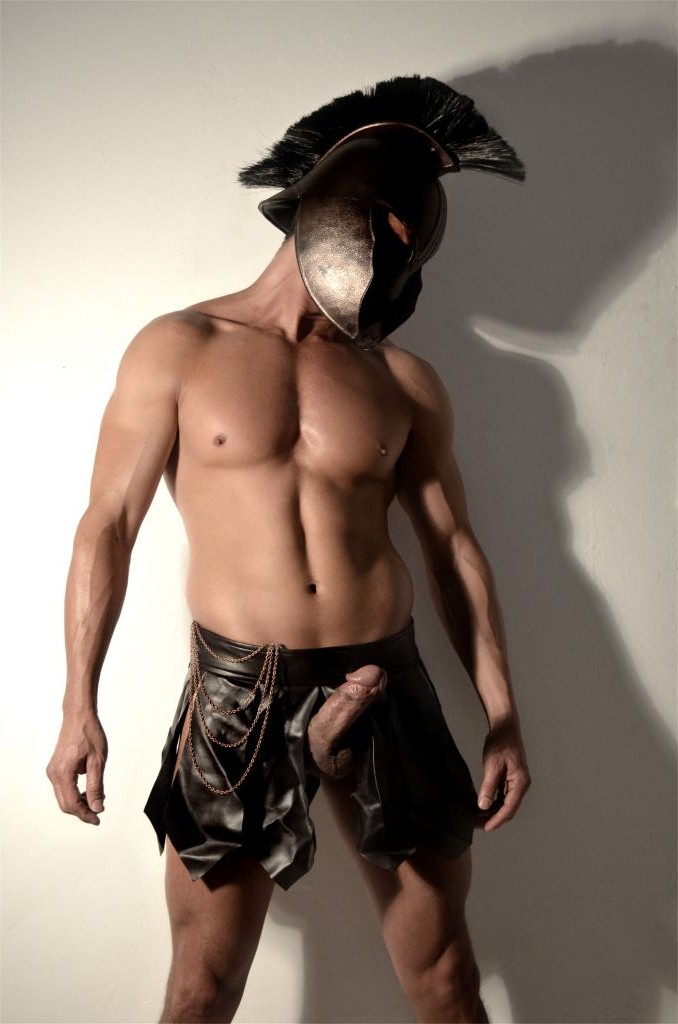This relationship was depicted to some extent in the Oliver Stone-directed biopic Alexander, starring Colin Farrell as Alexander and Jared Leto and Hephaestion, which was not a boxoffice success. Too bad porn stars are not good actors, because the Alexander story cries out for a hardcore adaption.
If I had to live in an historical period, I might choose ancient Greece. I think it would be a more erotic destination if you had a time machine, compared to ancient Rome or Egypt.
Now this is a photograph that Alexander the Great probably would've liked.

I think Alexander's love for Hephaestion was platonic and fraternal, no different than the bonds that all straight men in combat together develop.
ReplyDeleteThat said, they were schoolboys together and might have messed around at some point, but there are no witnesses or admissions attesting to that -- only an accusation from a political rival that could be cheap libel/slander.
Both Hephaestion and Alexander took wives. Alexander had three, in fact, including a son. Alexander also carried on with noble mistresses and female courtesans which were publicly witnessed and written about.
The only secure accounts of Alexander's homosexuality concern his eunuch boy Bagoas, with whom he was openly sexual. Alexander made out with Bagoas in front of his officers as shown in Stone's movie. Officers like Ptolemy went on to describe their ongoing love.
Hephaestion was not known as a philanderer or womanizer like so many of his comrades. He was never associated with a woman; his marriage of only 4 months was seen as a political arrangement.
This leads some historians and wishful gay men to believe he was queer, but it's only speculation.
One thing you can be sure of is that Hephaestion was never Alexander's "eromenos."
"Eromenos" is the word for noble apprentices with explicitly homosexual duties to their much older Greek mentors and sponsors from the upper class.
Alexander and Hephaestion were peers, schoolmates, best friends and roughly the same age. They would have been eromenoi for their elders, not each other.
Wow do I love his cock!!!!
ReplyDeleteGary
Gavin's comment is most
ReplyDeleteintelligent & reasoned
with historical evidence...
But it's still easy to
romanticize "possibilities"
between two such heroic
figures...Oh, the possible
scenarios...
Reasonable & intelligent
ReplyDeletecomments from Gavin-but
still tempting to imagine & romanticize "possibilities"
between two heroic figures
like Alexander & his "warrior-bro"...Hmmm..."possibilities"...